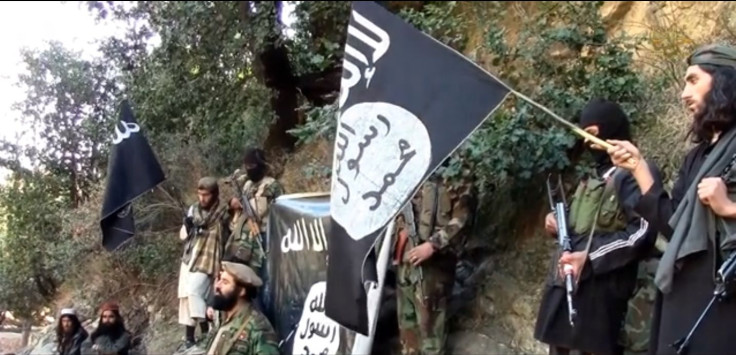ISIS Recruiter, Former Guantanamo Bay Prisoner And Taliban Member, Killed In Afghanistan Drone Stike

A former Guantanamo Bay prisoner who joined the Taliban after his release in 2007, and later defected to the Islamic State group, was killed when a NATO drone strike hit an ammunition-filled car in Afghanistan’s Helmand province Monday, police officials told the BBC.
Mullah Abdul Rauf, his brother-in-law and four Pakistanis were killed in the strike, according to Reuters. NATO confirmed that a drone strike had occurred but not that Rauf was the intended target, nor that he had been killed. NATO combat troops left Afghanistan last year and the alliance launched Operation Resolute Support on Jan. 1, 2015, to continue assisting Afghan troops. This is the first confirmed drone strike in the renamed operation, according to the BBC.
Rauf, 33, spent several years in Gitmo, accused of being a high-ranking member of the Afghan Taliban, before being released in 2007. He then joined the Pakistani branch of the Taliban. He reportedly defected to ISIS earlier this year and began actively recruiting in Afghanistan. A Taliban commander, however, told Agence France-Presse that the defection was not formal, as ISIS did not officially recognize him as member.
Two weeks ago, the Taliban in southern Afghanistan’s Helmand province captured Rauf, along with 45 other suspected members of ISIS, which has a small presence in Afghanistan. Its militants have reportedly been fighting the Taliban in some areas of Helmand.
Last month, ISIS formally declared the expansion of its so-called caliphate into Khorasan, the name of a historic region of eastern Persia that now overlaps parts of present-day Afghanistan and Pakistan. The group announced in a video that the branch’s new leaders are former members of the Tehreek e-Taliban e-Pakistan, the Pakistani branch of the Taliban, who were expelled in October for pledging allegiance to ISIS.
The ISIS entity in Afghanistan includes "emirs" in charge of regions, including the Khyber region emir Sheikh Kulzaman al-Fateh, the emir of the eastern province Saad al-Emirati and northeastern emir Sheikh Mohsen.
© Copyright IBTimes 2024. All rights reserved.






















